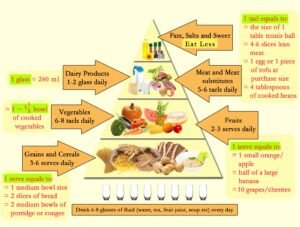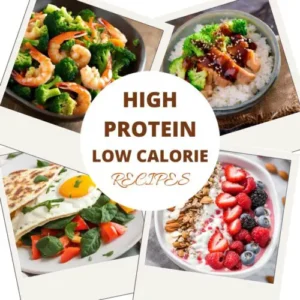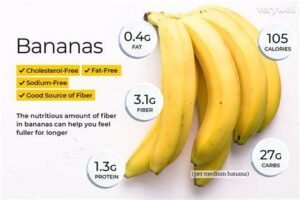Your Body is a Temple: Let’s Nourish It!
Have you ever felt that your body needs some extra love and care. Let’s face it, life gets busy. With work, family, and social commitments, it’s easy to let our nutrition take a backseat. But believe me, when it comes to feeling good and having energy, what you eat matters a LOT. Okey then, we’ll dive deeper into ” How to Restore Nutrition”
This blog post is all about helping you understand the importance of nutrition and how to get back on track. We’ll explore what it means to be “nutritionally depleted”, why it happens, and, most importantly, how to fix it.
Click to see
Understanding Nutritional Depletion
Ever felt like you’re constantly tired, even after a good night’s sleep? Or maybe you’re noticing changes in your skin, hair, or nails? These could be signs that your body is crying out for essential nutrients.
Nutritional depletion happens when your body doesn’t get enough of the vitamins, minerals, and other substances it needs to function optimally. It’s like running a car on empty – it’s going to sputter and eventually break down.

person looking tired and unhealthy
Common Culprits Behind Nutritional Depletion
So, what causes this nutritional drain? Let’s break it down:
- Poor Diet: Relying too much on processed foods, sugary drinks, and fast food can leave you lacking in essential nutrients.
- Stress: Believe it or not, chronic stress can deplete your body’s nutrient stores.
- Digestive Issues: Conditions like irritable bowel syndrome (IBS) or Crohn’s disease can interfere with nutrient absorption.
These are just a few examples, but they give you an idea of how easily nutritional depletion can happen.
Recognizing the Red Flags: Signs of Nutritional Depletion
So, how do you know if you’re nutrient-deficient? Keep an eye out for these common signs:
- Fatigue: Feeling constantly tired, even after enough sleep? This could be a sign of iron or vitamin B12 deficiency.
- Weak Immune System: Catching colds frequently? A weakened immune system might be linked to nutrient deficiencies.
- Poor Skin, Hair, and Nails: Dull skin, brittle nails, or hair loss can be signs of vitamin deficiencies.
- Digestive Issues: Problems like constipation or diarrhea can be related to nutrient imbalances.
- Mood Swings: Feeling irritable or depressed? Some nutrient deficiencies can affect your mood.

person checking their hair for signs of breakage
Remember, these are just some common signs. If you’re concerned about your nutritional status, it’s always best to consult with a healthcare professional.
Inflammation: The Silent Nutrient Thief
You’ve probably heard the term “inflammation” before. While it’s a normal bodily response to injury or infection, chronic inflammation can wreak havoc on your health.

inflamed cells
Believe it or not, inflammation can interfere with your body’s ability to absorb essential nutrients. It’s like a gatekeeper blocking the entry of vital supplies. Over time, this can lead to nutrient deficiencies and a host of health problems.
Building a Foundation for Nutritional Restoration : Nourish Your Gut
Your gut is often called your “second brain” for a reason. It’s home to trillions of bacteria that play a crucial role in digestion, immunity, and even mood. A healthy gut is essential for absorbing nutrients and supporting overall well-being.

human gut with beneficial bacteria
When your gut is out of balance, it can lead to nutrient malabsorption and other health issues. That’s why nourishing your gut is the first step towards restoring your overall nutrition.
Real Food, Real Results
Let’s talk about the foundation of good health: real, whole foods. These are foods that are as close to their natural state as possible, without added preservatives, artificial flavors, or excessive processing.

colorful plate filled with fresh fruits, vegetables, and whole grains
Think colorful fruits and vegetables, lean proteins like chicken, fish, and beans, whole grains like brown rice and quinoa, and healthy fats like avocados and olive oil. These foods are packed with essential nutrients that your body craves.
By filling your plate with whole foods, you’re not just providing your body with fuel, but also giving it the building blocks it needs to repair and rebuild.
Pack Your Plate with Powerhouse Foods
Now that you know the importance of whole foods, let’s talk about how to fill your plate with nutrient-dense powerhouses.
These are foods that are packed with vitamins, minerals, and antioxidants. Think of them as superheroes for your body!
- Leafy Greens: Spinach, kale, and collard greens are packed with vitamins, minerals, and fiber.
- Berries: Blueberries, raspberries, and strawberries are antioxidant powerhouses.
- Avocados: A great source of healthy fats, fiber, and potassium.
- Nuts and Seeds: Packed with protein, healthy fats, and fiber.
- Lean Proteins: Chicken, fish, beans, and tofu are excellent sources of protein.
- Whole Grains: Brown rice, quinoa, and whole-wheat bread provide sustained energy.
By incorporating these foods into your diet, you’re giving your body the nutrients it needs to thrive.
Meal Planning for the Busy Bee
Let’s face it: life gets hectic. Between work, family, and social commitments, finding time to cook healthy meals can feel like an impossible task. But don’t worry, you’re not alone!

weekly meal planner or a fridge filled with mealprepped containers
Meal planning can be your secret weapon for sticking to a healthy diet. By planning your meals in advance, you’ll save time, reduce food waste, and ensure you’re getting the nutrients you need.
Here are a few tips to get you started:
- Choose simple recipes: Opt for dishes that don’t require a long list of ingredients or complicated cooking techniques.
- Cook in bulk: Prepare larger portions of your favorite meals and divide them into meal-sized portions for easy reheating.
- Involve the whole family: Get your family involved in meal planning and preparation to make it a fun and enjoyable experience.
Remember, meal planning doesn’t have to be perfect. The goal is to make healthy eating easier, not more stressful.
Click to see
Targeted Nutritional Support : Identifying Nutrient Deficiencies
While eating a balanced diet is crucial, sometimes you might need a little extra support. That’s where identifying specific nutrient deficiencies comes in.

person getting a blood test
A blood test can help determine if you’re lacking in essential vitamins and minerals. Common deficiencies include:
- Iron: Important for carrying oxygen throughout the body.
- Vitamin D: Essential for bone health and immune function.
- Vitamin B12: Crucial for nerve function and red blood cell production.
- Omega-3 fatty acids: Support heart health and brain function.
If you suspect a nutrient deficiency, it’s important to consult with a healthcare professional for proper diagnosis and treatment.
Fuel Your Body: The Power of Food
Once you’ve identified any nutrient deficiencies, it’s time to focus on boosting your intake of those essential nutrients.
Let’s break down some common deficiencies and their food sources:
- Iron: Found in red meat, poultry, fish, beans, lentils, spinach, and fortified cereals.
- Vitamin D: Primarily found in fatty fish, egg yolks, and fortified dairy products. Sunlight exposure also helps produce vitamin D in the body.
- Vitamin B12: Found in animal products like meat, poultry, fish, eggs, and dairy.
- Omega-3 fatty acids: Abundant in fatty fish like salmon, mackerel, and sardines, as well as flaxseeds and chia seeds.
Remember, while food is the best source of nutrients, supplements might be necessary in some cases. However, it’s crucial to consult with a healthcare professional before starting any supplement regimen.
Supplements: A Helping Hand or a Hype?
Supplements can be a valuable tool in closing nutrient gaps, but it’s essential to approach them with caution.

variety of supplements
Let’s clear up some common misconceptions:
- Supplements are not a magic pill: They should complement a healthy diet, not replace it.
- Quality matters: Choose reputable brands that are third-party tested.
- Consult your doctor: Discuss any supplements with your healthcare provider, especially if you have underlying health conditions or are taking medications.
The Role of Dairy in Nutrition : Controversial Choice?
Dairy products, like milk, yogurt, and cheese, have been a staple in many diets for centuries. They’re packed with nutrients like calcium, protein, and vitamin D, making them essential for bone health, muscle growth, and overall well-being.
Let’s dive into the pros and cons of dairy consumption, explore dairy alternatives, and uncover the truth about dairy and bone health.
Dairy: The Good and the Bad
Dairy products offer a range of benefits:
- Bone Health: Calcium and vitamin D in dairy are crucial for building and maintaining strong bones.
- Protein: Dairy provides high-quality protein for muscle growth and repair.
- Other Nutrients: Milk, yogurt, and cheese offer vitamins B12, riboflavin, and phosphorus.

person enjoying a bowl of yogurt
However, some people have concerns about dairy:
- Lactose Intolerance: Difficulty digesting lactose, the sugar in milk.
- Hormones and Antibiotics: Concerns about potential residues in dairy products.
- Environmental Impact: Dairy production’s contribution to greenhouse gas emissions.
It’s important to weigh the benefits and drawbacks to make informed choices about dairy consumption.
Dairy Alternatives: A World of Options
For those with lactose intolerance, allergies, or dietary preferences, dairy alternatives offer a delicious and nutritious option.

various plantbased milk alternatives
Here are some popular choices:
- Almond milk: Creamy and nutty, with a light flavor.
- Soy milk: High in protein, with a slightly beany taste.
- Oat milk: Creamy and slightly sweet, with a good source of fiber.
- Coconut milk: Rich and creamy, with a tropical flavor.
- Rice milk: Mild and slightly sweet, suitable for those with allergies.
While these alternatives can be enjoyed by everyone, it’s important to check the nutritional label, as they may not contain the same level of calcium and vitamin D as dairy milk. Many brands fortify their products with these essential nutrients.
Dairy and Bone Health: A Strong Connection
Calcium is the primary building block of bones, and dairy products are an excellent source. Milk, yogurt, and cheese provide a significant amount of calcium, along with vitamin D, which helps your body absorb calcium effectively.

strong healthy bones
Building strong bones during childhood and adolescence is crucial for preventing osteoporosis later in life. While dairy is not the only source of calcium, it’s a convenient and easily digestible option.
However, it’s important to note that other factors contribute to bone health, including weight-bearing exercise, vitamin K, and magnesium. A balanced diet and lifestyle are key to maintaining strong bones throughout your life.
Lifestyle Factors for Optimal Nutrition
By following of lifestyle Factors for Optimal Nutrition, you’re creating to manage an optimal environment for your body.
Sleep, Stress, and Exercise: The Nutrition Trio
While diet is a cornerstone of good health, it’s not the only factor that influences your nutritional status. Lifestyle choices play a significant role as well.
Let’s break down the importance of sleep, stress management, and exercise:
- Sleep: When you’re well-rested, your body has the energy to repair itself and absorb nutrients effectively.
- Stress: Chronic stress can disrupt your hormones and digestion, impacting nutrient absorption.
- Exercise: Regular physical activity helps boost your metabolism and improve nutrient utilization.
By prioritizing these lifestyle factors, you’re creating an optimal environment for your body to thrive.
Hydration: The Often Overlooked Nutrient
While we focus on vitamins, minerals, and macronutrients, water often takes a backseat. But it’s essential for overall health and nutrient absorption.

person drinking water
Dehydration can lead to fatigue, headaches, and impaired cognitive function. It can also affect your body’s ability to digest food and absorb nutrients.
Aim to drink plenty of water throughout the day. You can also stay hydrated by eating water-rich foods like fruits and vegetables.
Your Journey to Optimal Nutrition
Congratulations on taking the first steps towards restoring your nutrition! Remember, it’s a journey, not a destination. Small, sustainable changes can make a big difference.
By prioritizing whole foods, managing stress, getting enough sleep, and staying hydrated, you’re setting yourself up for long-term success. Don’t forget to listen to your body and seek professional guidance when needed.
Remember, small steps can lead to big results. Be patient with yourself and celebrate your progress along the way.

motivational quote about selfcare
Your body deserves the best, so let’s nourish it together!





